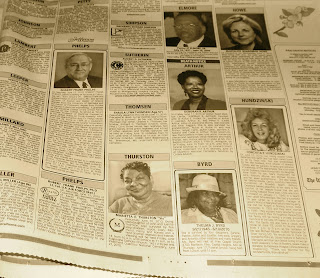 Athough I normally avoid reality shows (because I'm not interested in dieters, dysfunctional families, or desperate "celebrities"), E-girl and I have been making our way through taped episodes of the current season of "So You Think You Can Dance" (SYTYCD).
Athough I normally avoid reality shows (because I'm not interested in dieters, dysfunctional families, or desperate "celebrities"), E-girl and I have been making our way through taped episodes of the current season of "So You Think You Can Dance" (SYTYCD).Why? Because E-girl loves to dance. Even in utero, I realize now, she was trying to tap. She says she wants to be a professional dancer when she's older, for a few years, before she becomes a botanist and mom. She realizes there's an end to it already.
Is there any art more ephemeral than dance? Not just the performance, over in a few minutes. But the dancer's body itself—fleetingly supple and strong, particularly for ballet (and, probably, for break-dancing and hip-hop). Picasso was still producing art into his nineties, John Updike was writing and lecturing in his seventies. Old dancers can be teachers or choreographers, but if they still dance it's probably in solitude, without the audience they once hungered for.
Ironically, dance—the art form of motion—is the most static of art forms. It stays in place and can't be easily transported or transformed into another, more mobile medium. A painting can decorate a t-shirt or become a poster; a song can be heard while jogging or driving; words can become text which can become books or magazines or newspapers. Dance doesn't become anything else—it just is.
So the young people on SYTYCD may already be at their peak as dancers, or nearing it, which makes the dancing more precious and beautiful. You wish they didn't have to be judged and voted upon and eliminated, but could just be celebrated for their skill and enthusiasm.
I don't like the results show, the evening after the individual performances, where the dancers are lined up and told which ones got the lowest number of phone-in votes from the public. The bottom three are each given a minute to dance for their survival. I watch this part of the show with a finger on fast forward because it's too painful to watch, yet I still can't not watch it either. It's like a little death each week. And then the next week, the competition begins again and the cut performer is forgotten. The dance goes on.
(The illustration is a sepia-tinted snapshot of the "Hallelujah" dance from the first competition evening of this season's SYTYSD.)








